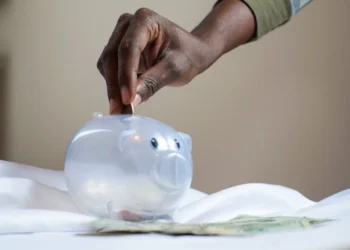Fear and greed, are some of the ancient emotions humans have always felt since the dawn of the ages. However, the spectrum of these emotions differs among many individuals.
While some get their fears triggered easily, it would take something monumental for others. Fear is an emotion that has helped humans survive and thrive.
We feel fear whenever we are under threat and our body responds quickly to help us cope.
For example, when under attack by someone else, the fear kicks in and triggers our fight or flight hormones that help us tackle the situation or flee to safety.
As we evolved as humans, the number of times we faced some of our fears and greed greatly reduced. An instance is the number of times we have had to run away from a wild animal.
Civilised people no longer need to be too greedy because even without accumulating too much humans can simply buy or get more. These were not the case when our ancestors walked the planet.
Every day was a fight, food must be accumulated in the largest of quantities to ensure survival. These emotions gradually become less frequent and when the modern man feels it, he hardly knows how to handle it.
According to Research and Banking, as much as 90% of investors lose all their money. This is a far cry from what the investment broker tells his clients.
This is not what the investment houses put in front of their newspaper offerings. Once an investor eventually discovers how tricky the idea of making money is, one of our initial emotions; fear is unlocked.
A poll published by Yahoo Finance revealed that 61% of Americans say they’re more scared of running out of money than of dying.
Running out of money to some means shame, incompetence, misery, suffering and disgrace. They’d rather be dead than be impoverished.
Unfortunately, we face the odds of losing our money every time we make an investment decision. This is because no matter how safe the investment is made to seem, there are underlying risks of ruin.
For example, bonds are often considered very safe, but in 2008 following the global financial crisis, the prices skyrocketed and yields fell leaving some investors with a net negative return.
The Emotional Paradox
Robert Kiyosaki in his book Rich Dad Poor Dad said; that an opportunity that makes it to the front page of the newspaper is probably gone(paraphrased).
The paradox in investing is the fact that all the pieces of information can never align properly and investors must accept the fact that an investment decision is at best a bet with equal probabilities of returns and losses.
How many times have investors waited for the “stars to align” only for the opportunity to have passed them by?
Hence, there is nothing like a perfect investment decision. The fear of losing money may cause us to miss opportunities.
However, the paradox lies in the fact that doing the exact opposite of being very cautious is also very lethal. Many investors have faced severe financial losses simply because they refused to apply a little bit of caution.
They jumped head-in without doing enough research to justify the investment.
Hence, the investor is faced with this paradox, jump head in and you may take on unnecessary financial risks, hesitate too much and you may miss life-changing investment opportunities.
Controlling Your Emotions
One of the most successful investors, Warren Buffett described investing as a vehicle that takes money away from the impatient to the patient.
Or better still I would love to say it takes money from those who cannot control their emotions to those who can.
The Investors who make incredible returns consistently have very high control of their emotions and avoid making stupid investment decisions.
According to Corporate Finance Institute in the early 2000s following the dot com bubble burst, investors in internet stock lost more than $2 trillion.
From an emotional perspective, these numbers tell a whole different story. Most investors face the emotional problem of the fear of losing so even when there are very visible signs that a sector is underperforming or crashing they refuse to take their losses and go away. Instead, they do what naive investors do; add to their investments.
They add to investments that are plunging with the hopes of eventually making a return.
They eventually take the loss when it becomes too much to bear. Professional investors on the other hand define the loss they can take beforehand and immediately collapse investment in an asset once the negative returns hit.
How To Manage Your Emotions As An Investor
Accept the possibility of losses: Even the most experienced hedge fund managers still lose months, quarters and years.
A major disclaimer we always see tossed around is “investing is risky and can lead to loss of some or all of principal invested”. While we hurriedly accept these terms and conditions only a few really accept the risks involved.
Develop a plan: When my asset gives me a 50% return, I will sell some units of it. When the value of my real estate holdings plunges to a certain amount, I would consider selling them off to avoid more financial losses.
These are certain statements and conditions that can make up your plan or rulebook. These plans would help you make future decisions right now so you don’t get emotional when the time eventually comes.
Diversify your earnings: A CNBC article underscores the benefits of having at least a steady source of income or a large nest before considering investing as a full-time hustle.
This is because the more you are under financial stress in real life, the more emotional you would be making you probe to make poor investment decisions.
Always seek alternative sources of making money to help you stay level-headed.
Talk to a professional: Most hedge funds have psychologists who speak to their traders and analysts frequently to help them keep their emotions in check.
This is because psychology is often regarded as the most important part of investing with some experts attributing it to as high as 80% the reason why investors fail.
This is more reason why you should seek professional help to help you keep your emotions in check.
In conclusion, there is no magic pill to help you become unemotional at once. In fact, superstar investor Paul Tudor Jones admits in an interview that he still feels fear. In essence, the art of emotional detachment is a lifelong struggle because if we are being honest about it we are here for one thing; the money.
























This is a good one. But, talking to a PROFESSIONAL doesn’t mean you won’t lose money cause my wife has been the one helping her stockbroker to check movements of the stocks they invested in and some minutes ago she just messaged me that the Unity Bank Shares she bought has just been sold at a ₦35,000 loss. That’s a professional advice there. Funny enough, we were against that share but he said he has done his due diligence on it.
Las Las, investment for Naija Na risk. Just don’t dive in head-on and don’t forget to brace yourself for the worst. Ire ooo
Thumbs up for a good writeup. We all share in this emotion of a thing but it must be overcome.
I asked my son to add to his mutual fund investment, the equity fund by calling his account manager. The response to my son was that, “Equity fund is risky, you can loose your money”. To me, this doesn’t sound like a good counsel from an asset management company. Living life without taking risk, a calculated one of course, will amount to nothing. No one has ever played it safe, there must be loses and gains, we only ensure to make more gains than the losses and this can be achieved.
Warren Buffet has said it all, “investing takes away money from the impatient to the patient”. He also said, you can not produce a baby in one month by getting nine women pregnant at the same time(paraphrased). This is instructive. Market rewards those who are patient and consistent with investing. No shortcut.